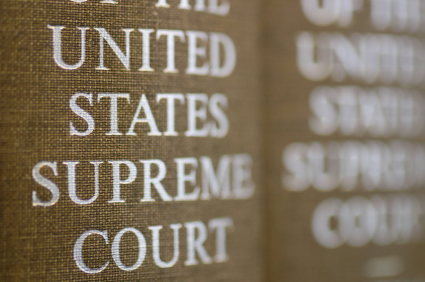
Last week the Washington state Supreme Court upheld fare enforcement checks on public transit, but with a twist. It probably should be done by non-law enforcement personnel. Three justices concluded that the role of armed police inside a transit vehicle, telling someone to produce fare and ID, was coercive. Two other justices found a lack of proof that deputies were actually authorized to conduct fare inspections for Community Transit. However, all nine justices agreed that transit agencies were allowed to conduct fare inspections.
Community Transit’s Swift buses in Snohomish County, as well as King County Metro RapidRide buses, Sound Transit light rail, and Sounder commuter trains, all rely on spot checks of passengers to ensure rider payment. This is in place of barrier style entry such as turn styles. Most riders tap an ORCA card at roadside kiosks before boarding. Others buy tickets before boarding at the transit center. Fare inspections are thereafter periodically done on the transit vehicle. In the case considered by the Supreme Court, a rider was approached by a Snohomish County sheriff’s deputy, who asked for proof he’d paid in advance. The encounter ended in an arrest. The man sued, and after the lower courts found fare enforcement to be constitutional, the case reached the state Supreme Court. The Supreme Court held that without evidence that the passenger was informed that fare enforcement on the bus may involve questioning by law enforcement officers, the state could not meet its burden of proving that the passenger voluntarily consented to such an interaction merely by boarding. As such, it was not lawful because it violated Washington search and seizure laws. That is the twist the Supreme Court added to the ruling. The High Court did not strike down any statute permitting designated persons to request proof of fare payment on barrier-free transit systems, but it did reject the particular method of fare enforcement used in this particular case because it lacked legal justification. The High Court noted that its ruling was necessary to both preserve constitutional privacy rights of transit passengers and to mitigate the known, racially disproportionate impact of such fare enforcement practices.
Traditionally, Sound Transit trains and King County Metro’s RapidRide buses have historically relied on contracted private security guards instead of police to do fare checks, with the ability to call law enforcement in the event of serious confrontations, and this would seem to be in line with the Supreme Court’s ruling. In this case the problem arose when actual law enforcement attempted to unconstitutionally verify if the passenger had paid for his ride on the transit system. Specifically, when asked for his name, the passenger gave the deputies an alias. After failing to find any record of the name provided, the deputies identified the passenger using a fingerprint reader and found that he had outstanding warrants in their system. The deputies arrested him on investigation of making false statements. This arrest was deemed unlawful because it was an illegal seizure under the state constitution because riders do not have a reasonable belief that they are free to walk away in that moment. The Supreme Court’s ruling echoes findings that fare enforcement, as a whole, disproportionately affects people of color, and as such should be done judiciously and with an eye to protecting passenger rights.
Metro Transit has been rethinking equity and enforcement since early 2021, but has yet to choose a new fare collection philosophy. Some Metro drivers have been using a similar system to RapidRide, where they open multiple doors at busy stations, and riders pay by an unofficial honor system.
If you or a loved one is in a bind because of a criminal charge, immediately contact a Seattle Criminal Attorney. A Criminal lawyer is not going to judge you and understands that everyone makes mistakes. Hiring a Seattle Criminal Lawyer to help can – at a minimum – reduce penalties and can help direct people on how to best deal with their criminal charge, and many times even get them dismissed. So, it should go without saying that someone cited for a misdemeanor or felony should hire a qualified Seattle Criminal Lawyer as soon as possible. Criminal charges can cause havoc on a person’s personal and professional life. Anyone charged with a crime in Washington State should immediately seek the assistance of a seasoned Seattle Criminal Lawyer. SQ Attorneys can be reached at (425) 359-3791 and/or (206) 441-0900.


